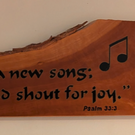Share your personal stories of awakening to racism in the Hilltowns
To the Editor:
This weekend’s demonstration in Berne, led by a daring 14-year-old activist, leaves no shortage of substance to debrief. It’s important to remember that we are not standing in solidarity to create an “us vs. them” environment — we want a “we” world.
CiCi Ferrara got up and told the crowd about her experiences growing up as a Black kid attending Berne-Knox-Westerlo. You should watch it online. With tremendous vulnerability and courage, CiCi and the other speakers stood to share some of their most troubling personal experiences — in the face of folks who gathered to counter-protest an antiracism rally and revved their engines to drown out the speakers’ words.
It’s a tremendous public service that the speakers and organizers provided — particularly CiCi. It’s a sad circumstance that folx are called upon to be spokespeople — to stand up in intimidating situations to point out privileged blindness, offer their life story as a Black American as a case study, and validate that racism is a real problem that deserves our attention. We all owe CiCi a debt of gratitude by keeping this conversation going.
Jim Lemire also spoke on Sunday and shared his personal experiences of white awakening. This is a scary and brave thing to do — publicly admitting you’ve been wrong, or that you’ve been too short-sighted to be right.
Regardless of where you stand, awareness around the issue of racism has never been so acute in my 36 years on the Hill — and awareness is transformative. To those of us who have experienced moments of awakening, we know that acknowledging overt, covert, and systemic racism makes it unjustifiable, and downright sad and despicable, to stand in the way of racial justice.
If we don’t want the rural fringe to be a bastion for fringe views, we need a groundswell to flood the hills with compassionate, undeniable awareness. As an exercise in civil discourse, I propose a community challenge:
Write a letter to the editor sharing your personal stories of awakening to racism in the Hilltowns. The deadline is noon on Tuesdays, there is a 1,000-word limit, and link to submit it here.
Don’t name names. Don’t throw stones. Let’s create a safe space where people can admit they have room for improvement just like we all do.
Here I go: When I was 8, my third-grade teacher, Mrs. Tiffany, paired up with a class from Giffen Elementary in Albany as pen pals to broaden BKW kids’ horizons. My pen pal’s name was Eve. One day, we went to Giffen to meet our pen pals – their class was mostly black.
Three things stand out in my memory from that day. Upon first meeting their class, I remember thinking: “Why are they all black, and we’re all white?” Then, I remember feeling ashamed that I thought that, and nervous heading out onto the playground.
Then, I remember playing with Eve, who was as sweet in person as she was in her letters, and I think could tell I was nervous. She was kind to me, and we had a blast.
Being a farm kid in Knox, my surroundings were particularly non-diverse growing up, and I was admittedly pretty ignorant and sheltered about the real pain racism causes in people’s lives. What I wasn’t ignorant to, though, was casual racist and sexist humor — I was well acquainted with prejudiced jokes and stereotyping, and that always bothered me. Usually if I heard something, I would fire back with some snarky shot to stop it in its tracks — but not always.
When I was a senior in college at Marist (also largely lacking in diversity, and exploding with white privilege), I took one of my favorite courses, Honors Ethics. Professor Worrell, a Black Scotsman, finally took all the ideological theory and philosophy I had spent the previous three years studying in academia, de-theorized it, and passionately applied it to real life — leaving my heart bleeding out on the seminar floor. Reading “Faces at the Bottom of the Well: The Permanence of Racism” altered and enriched my perspective on politics and governance completely.
One of the next times I was home, I went to a Hilltown bonfire shindig. As the beers flowed, the sexist and racist jokes got rolling in some circles. This time, though, with more experience and perspective under my belt, I was having a strong visceral reaction, and could feel my anger welling up to the point that I was shaking and on the verge of verbally dressing down two of the offenders, and probably getting pummeled. I left, refused to enable such behavior anymore, and have since said good riddance to the parties involved.
Most recently, I got a lesson in listening. A couple of years back, in my communications job, I was proofing a press release that used the term “people of color.” My whiteness was showing, and I, working for an all-white organization, reflected back on a conversation I had some years earlier with some all-white friends.
One had adamantly expressed that saying “people of color” is “othering” language and should be avoided at all costs. There are articles supporting this point of view, but you can find a citation for any argument online. I wanted to tweak the sentence in the press release to avoid using the term, and a colleague of mine rightfully resisted.
The term had been put forth by actual people of color whose program was the subject of the press release, and my colleague suggested that I listen to what they would prefer to call themselves. She was 100-percent right, and I appreciate the check (thanks, Becca!). We need to be open to being checked, listen to what people of color are telling us about their lived experience, and honor that on its own merit.
Don’t let the Hilltowns be a bedroom community for racism. Keep the conversation going, spread awareness and invite others to do the same. Write a letter to the editor, and let’s fill this paper with stories folx can relate to.
Sarah Gordon
Rensselaerville

